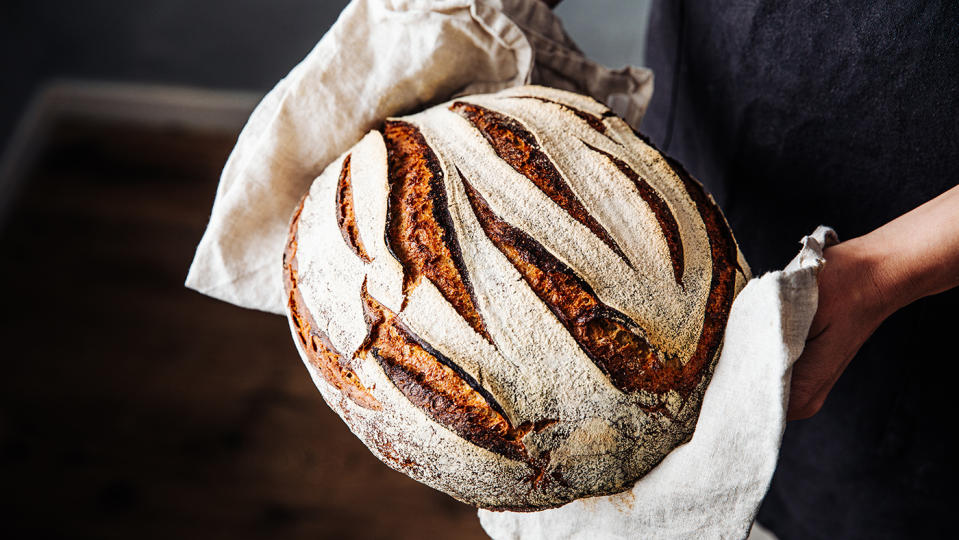Gluten-sensitive but bread-obsessed? Then try sourdough bread
Watch: Everything you need to know about gluten
Bread – and in particular, sourdough – has emerged as the must-bake item of the pandemic this year. There’s something so comforting in the art of kneading and proofing and ultimately, eating. However, if you’re gluten-intolerant, bread is one thing you usually have to avoid.
If you love bread, there is a light on the horizon! The saviour for many this lockdown, sourdough bread, is actually something that those with a sensitivity to gluten can tolerate.
Registered dietician, Dr Sarah Schenker, says this bread, which uses a fermented starter, is a better option for those that are either sensitive to gluten.
Read more: Eight easy swaps to go gluten-free
“Traditionally made sourdough bread is also well tolerated by these kinds of people because the fermentation process - because it goes on for a couple of days - actually destroys the gluten and breaks it down,” she explains.
“They do much better on things like traditional sourdough is then your commercially shop-bought breads.”

Sufferers of coeliac disease, which affects about 1% of the population, however, still have to go for gluten-free options as eating gluten can be really harmful for them.
“The gluten can damage the lining of the cells and it stops nutrients being absorbed into their bodies,” says Dr Schenker.
“Some people are diagnosed when they're babies, when the weaning process starts, but others aren't diagnosed until much later in life, maybe through a different condition, such as anaemia or having eye problems.”
Read more: How to make a sourdough starter
Gluten is a protein that is found in grains such as barley, wheat flour, oats and rye. These foods make up a large portion of modern-day diets, with an estimated daily intake of about 5-20 grams.
Those that are sensitive to gluten often find that symptoms of bloating and lethargy are reduced. Some people even lose weight on it.
Dr Schenker does warn though that just because something is gluten-free doesn’t mean it’s healthy – and she advises those with an intolerance go for naturally gluten-free food out there, rather than the processed options.
Read more: Gluten-free foods aren't as healthy as the real thing, nutrition experts warn
“If you do think about giving up gluten, that's absolutely fine, but do go for the wholegrain naturally gluten-free foods that are out there, such as brown rice and quinoa,” she suggests.
“The thing to remember is that there are lots of over processed, high sugar, high fat gluten-free products out there - and a gluten-free brownie at the end of the day is just a brownie!”
Watch: What is intermittent fasting and how does it work?


